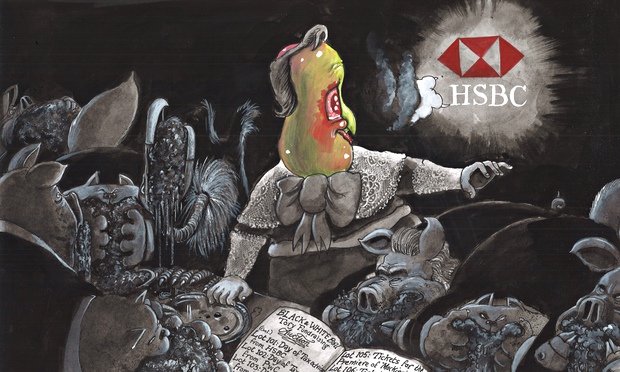
Library campaigners descend on parliament to defend public funding



The Alibi Library enjoyed celebrating National Libraries day with everyone this weekend!! We all have hangovers and alibis after our own bookathon involving the Sherlock Holmes series in which one was expected to drink a snifter every time a body part was mentioned. Unfortunately the word “hand” proved rather more frequent than we´d imagined:

Other Library Day events were better organised and well supported. Find out about more events and follow up here and here:
Next up Valentine´s Day for a romantic rendezvous in a Library near you!


As Alison Flood reports in her recent article in The Guardian, “Shaking off their traditional reputation as lovers of peace and quiet, librarians are preparing to take a loud battle for Britain’s libraries to the door of the culture secretary.”
She reports that the Chartered Institute of Library and Information Professionals (Cilip) is challenging the government over its “failure to carry out their legal duty to the public” and keep branches open using the 1964 Public Libraries and Museums Act (stating that the public has a statutory right to a quality public library service.)
“We’ve had enough. We’ve marked our line in the sand here. The government is behaving as if it doesn’t have a duty of care and they do, under the law. We think it’s time to be clear about what that means,” said Nick Poole, the chief executive of Cilip. More than 100 library branches were shut last year, and further branches up and down the UK face closure.
http://www.theguardian.com/books/2015/dec/17/library-closures-campaigns-fights-cuts-uk

Natalya Sharina, director of the Library of Ukrainian Literature in Moscow, was arrested in October after police raided her workplace and home looking for ‘extremist literature’.
After they allegedly found work by a banned writer, Natalya was forced to spend two nights in a prison cell and now faces up to five years in jail – simply for exercising her right to freedom of expression.

from Amnesty International
sign petition here:
Love this story from the ever wonderful Guardian newspaper:
A former pupil has returned a school book 65 years after first borrowing it – and has paid a £1,500 fine as recompense.
Sir Jay Tidmarsh, 82, came across the long-forgotten copy of Ashenden by W Somerset Maughan as he cleared out his shelves.
Tidmarsh decided to return the book to Taunton School in Somerset along with a £1,500 donation to the school library.
He said: “I don’t know why but I just happened to open the front cover and was shocked to see “Property of Taunton School” printed inside. I thought I should do the decent thing and return the book – paying my dues at the same time.”
Ashenden is a collection of short stories about a British spy during the first world war.
A veritable baffle of bankers, I believe that is the collective noun (Others have suggested worse!), have been through our doors in recent months.

Their bulging pockets, family ties and slippery nature makes applying an alibi tricky. Like calmly applying a saucepan lid to a volcano or a plaster to a cannon wound.


The financial rewards could be huge but there is little personal satisfaction in helping this well-dressed detritus.
 (Ben Jennings, The Guardian)
(Ben Jennings, The Guardian)
And when it finally gets to the courts, we all know that in the summing up, it will all add up to nothing and the bankers will walk free with or without the help of the Alibi Library. They are not accountants for nothing. But we know better than to believe that tricky math.
So while the bankers hide their whereabouts …

… where was good government? Do they need an alibi too? Whereabouts were they?
After all, they received the leaks two years before everyone else.
 (Martin Rowson, The Guardian)
(Martin Rowson, The Guardian)

This article is from Amnesty International´s blog By Mike F:

Today’s World Book Day celebrates and encourages reading. What will you pick up today? Some Shakespeare, a classic fairy tale such as Puss in Boots perhaps, or something weightier like Dostoyevsky’s Crime & Punishment? For Guantánamo detainees, however, none of these books are options; they are banned from reading them
The reading material requested by detainees is vetted and some books fail to make it through. To say the decisions are curious would be an understatement. Russell Brand’s Booky Wook 2 is forbidden. Franz Kafka’s The Trial is permitted. The protagonist in The Trial, Josef K, is arrested and prosecuted without ever learning of the charges brought against him. If any book were deemed too close to the bone, surely it would be The Trial.
The incendiary, inappropriate material in banned stories such as Cinderella and Jack and The Beanstalk is obvious. Other books appear to have been vetoed for their titles alone, regardless of the content – Crime and Punishment, John Grisham’s The Innocent Man, and Scott Turow’s Presumed Innocent, for example. The ban on The Innocent Man was lifted after Grisham wrote an article in the New York Times about Nabil Hadjarab, the man who had requested the book.
Tom Bingham’s The Rule of Law is prohibited. In this book, published towards the end of his life, the former Lord Chief Justice discusses law as the basis of a just society and the potential erosion of a fair legal system under the threat of terrorism.
Shaker Aamer’s lawyer, Clive Stafford Smith, has suggested that prisoners have been denied access to materials that might help them learn English. This stretches as far as banning the New Dinkum Aussie Dictionary. Just as communication seems to be frowned on by the US military, so does creativity. A poetry collection, Poems from Guantánamo: The Detainees Speak, was published in 2007 despite suspicion and opposition from the Guantánamo staff.
A restricted library is one of the lesser human rights violations experienced by Guantánamo’s detainees. Nonetheless, the arbitrary, sub rosa process of book censorship follows a pattern of decision-making that began when the GTMO military prison was set up in 2002.
Posted 06 Mar 2014, 2:35pm
By Mike F
To visit Amnesty International:
Voices for the Library reports that Justice Secretary, Chris Grayling, plans to restrict prisoners’ access to books and prison library services as part of changes to the punishment and reward system.
 The move reinforces the idea of a prison system that is merely punitive rather than playing a rehabilitative role, preparing many citizens for reinsertion.
The move reinforces the idea of a prison system that is merely punitive rather than playing a rehabilitative role, preparing many citizens for reinsertion.
 Access to books and reading extends opportunities for social participation, encourages reflection and helps develop a sense of social responsibility. It expands our ability to think about alternatives and evaluate our options, which for some may lead to strategies for avoiding criminal behaviour.
Access to books and reading extends opportunities for social participation, encourages reflection and helps develop a sense of social responsibility. It expands our ability to think about alternatives and evaluate our options, which for some may lead to strategies for avoiding criminal behaviour.
 “Prisoners see themselves differently; they gain confidence and self-esteem. They talk about having hope for the future, often for the first time. They feel able to envisage a different future and develop new aspirations for themselves.” (Prisoners Education Trust 2008, p.2)
“Prisoners see themselves differently; they gain confidence and self-esteem. They talk about having hope for the future, often for the first time. They feel able to envisage a different future and develop new aspirations for themselves.” (Prisoners Education Trust 2008, p.2)
 Furthermore where would some of our greatest literary works and writers be without access to paper, pen and reading material? To list but a few books at least partly written in while in prison:
Furthermore where would some of our greatest literary works and writers be without access to paper, pen and reading material? To list but a few books at least partly written in while in prison:
The Travels of Marco Polo
Don Quixote, Miguel de Cervantes
A Hymn to the Pillory, Daniel Defoe
De Profundis, Oscar Wilde
Our Lady of Flowers, Jean Genet
Justine, Marquis de Sade
 Thomas Malory, Richard Lovelace, Walter Rayleigh, Chidiock Tichborne, Ludwig Wittgenstein, Dietrich Bonhoeffer, Jack London, Martin Luther King, Nelson Mandela…
Thomas Malory, Richard Lovelace, Walter Rayleigh, Chidiock Tichborne, Ludwig Wittgenstein, Dietrich Bonhoeffer, Jack London, Martin Luther King, Nelson Mandela… (Oh and Mein Kampf by a certain Adolf somebody or other, but that doesn’t really serve my point so…)
(Oh and Mein Kampf by a certain Adolf somebody or other, but that doesn’t really serve my point so…)
Bo was reading her favorite book, when without warning …
the lights went out!
Bo felt a cold chill.
Whispers sniffled and snuffled in the dark. Shadows shivered closer.
A clammy hand grabbed Bo’s book . . .
“GOT IT!” squealed a voice!
A book for younger readers, The Ghost Library is about enjoying books and stories, and about making up your own stories:
Bo is a little girl who loves to read stories before bedtime. One evening, as she is reading an especially funny tale about a witch with stinky feet, all the lights go out. Before she can recover, a clammy hand grabs one end of her book. Unable to let go of her book she closes her eyes and holds on tight to the other end. Bo and her story book are whisked away to a strange place where she has never been before. When she opens her eyes, she finds herself standing in the Ghost Library.
The Library:
This is a room full of empty shelves!!! A gigantic, spooky room, but nonetheless filled with empty shelves.
The clients:
The Ghost Library is where the ghosts go to listen to stories borrowed from unsuspecting children. The ghosts who regularly visit this place are constantly looking for more good stories—but their shelves are always empty. Bo…Bo teaches them that stories exist everywhere, not just in books. Her head is full of ideas. She dreams up the perfect way to help the ghosts fill their library with wonderful stories.
This clever story involves effort on the part of young readers as there are two sections where the story is told in pictures so you have to make it up while you read it. There is also one gigantic flap to show the tall tower where the library is (I would love to have that many book shelves!) and it’s like getting three stories in one with the stories within the story – these are drawn in different styles too so the book maintains interest on all sorts of levels.
Coming up; The Plume Library, Charlie Higson, Carole Boston Weatherford